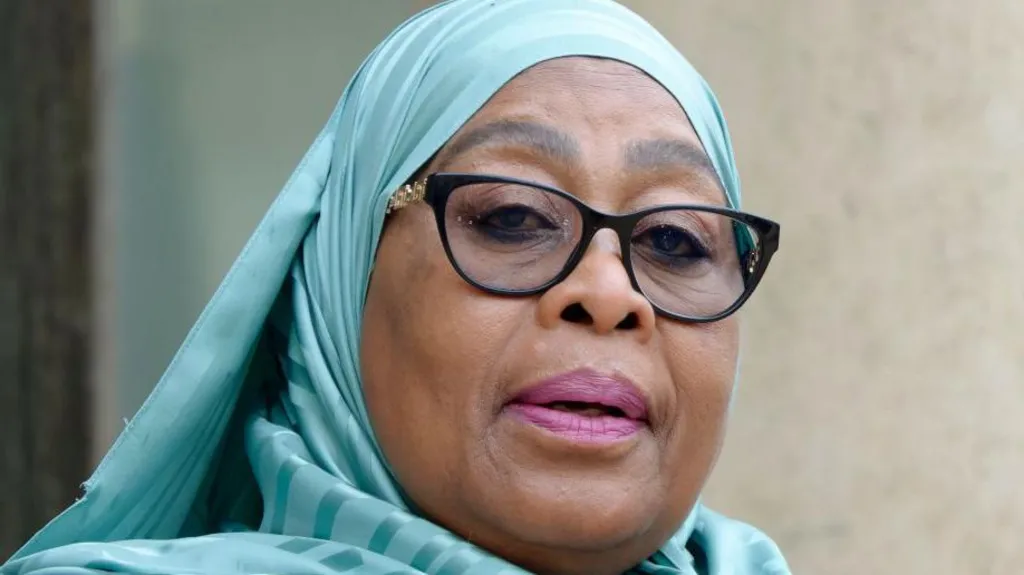A Tanzanian portrait artist, who was accused of burning a photo of President Samia Suluhu Hassan, has been sentenced to two years in prison or a fine of $2,000 (£1,600) after being found guilty of cybercrimes.
Shadrack Chaula was arrested for allegedly recording a viral video, showing him burning a picture of President Samia while verbally insulting her.
The 24-year-old painter admitted committing the crime and failed to defend his action in court.
His arrest sparked legal controversy, with some lawyers saying that no law was broken in burning the picture.
Some social media users have started an online drive to raise money to pay Chaula’s fine so he can be freed from jail.
In 2018, Tanzania enacted tough laws against the spread of “fake news”, which critics see as a way of curbing freedom of expression.
Police said Chaula used “strong words” against the president in the video he posted on his TikTok account on 30 June in Ntokela village, in the south-western city of Mbeya.
Local police chief Benjamin Kuzaga on Tuesday told journalists that the artist’s offences included burning the president’s portrait and disseminating offensive content online.
“It is not the culture of Mbeya people to insult our national leaders,” Mr Kuzaga said.
Some lawyers said there was no law that criminalises burning a picture of the president.
“Was the picture taken by a government photographer? Let them come out publicly and explain their impact on society and the nation. Who can show the law that burning a picture is an offence?” lawyer Philip Mwakilima told the Mwananchi newspaper.
But the act, which is deemed unethical in Tanzania, sparked public outrage.
On Thursday, magistrate Shamla Shehagilo found Chaula guilty of distributing videos on TikTok that contained false information in violation of the country’s cyber laws.
The court ruled that his actions constituted cyber-harassment and incitement.
Chaula remained silent when given the chance to defend himself against the charges, local media reported.
The prosecutor had urged the court to impose a harsh penalty on him in order to deter others from “disrespecting” the president.
The case has sparked a debate in the country with critics saying the sentence is too harsh and a reflection of the government’s crackdown on dissent.
President Hassan, who came to power in 2021, has introduced reforms that have opened up the political and civic spaces.
But the opposition and rights groups have expressed concerns that the country is sliding back to retrogressive policies.
